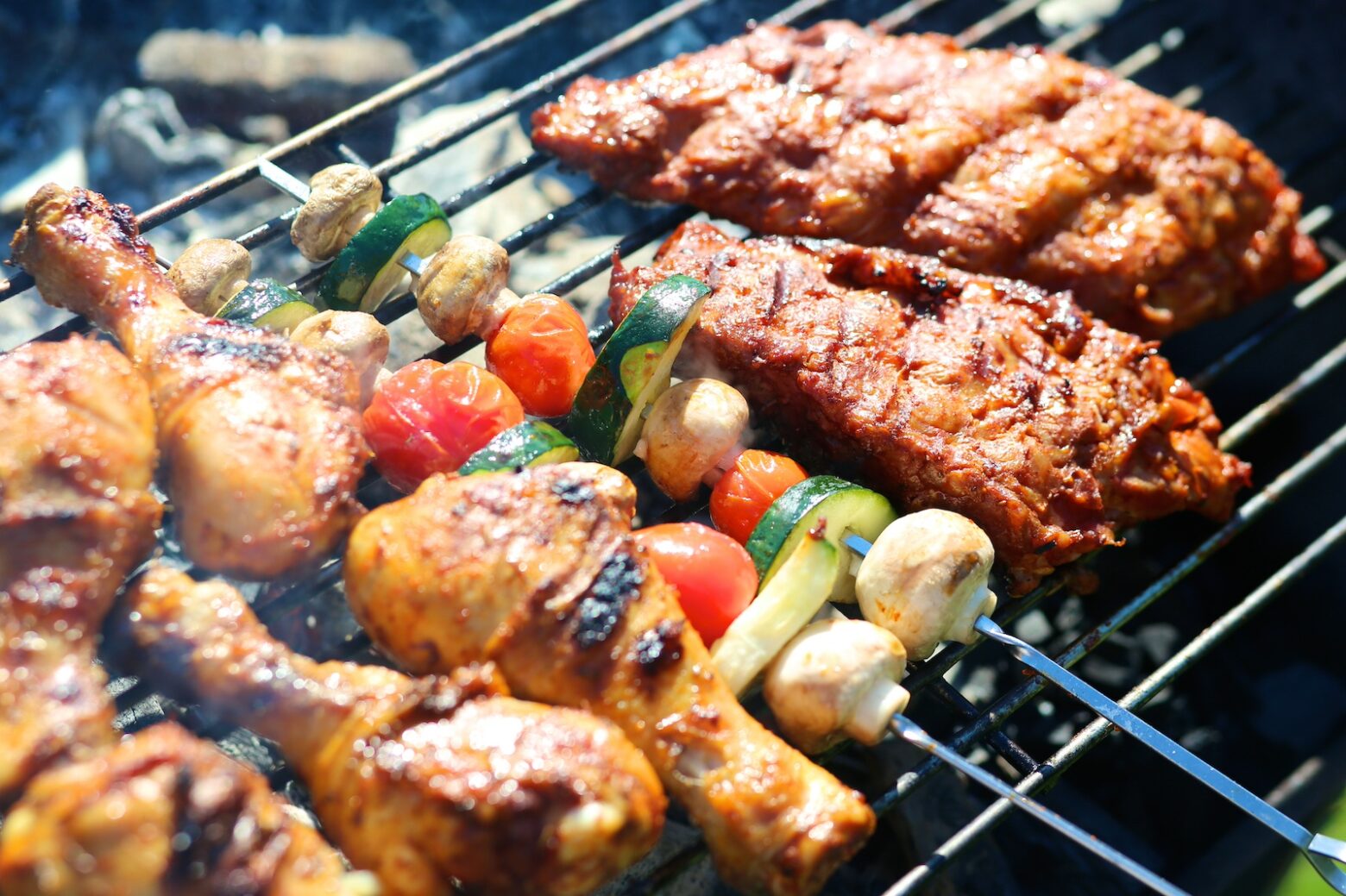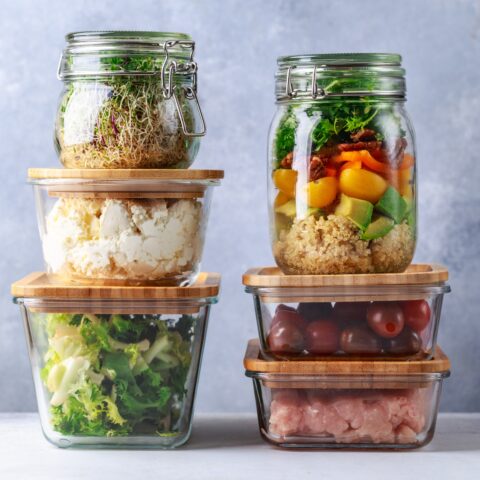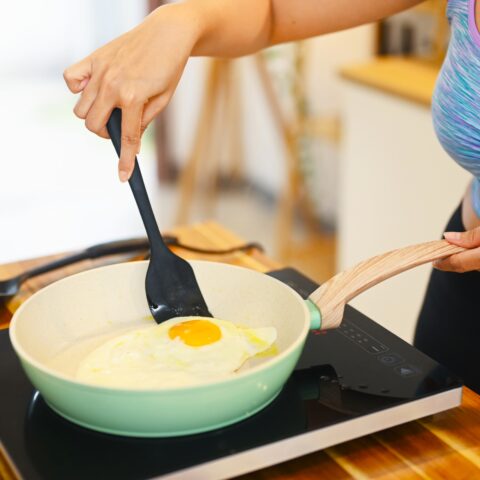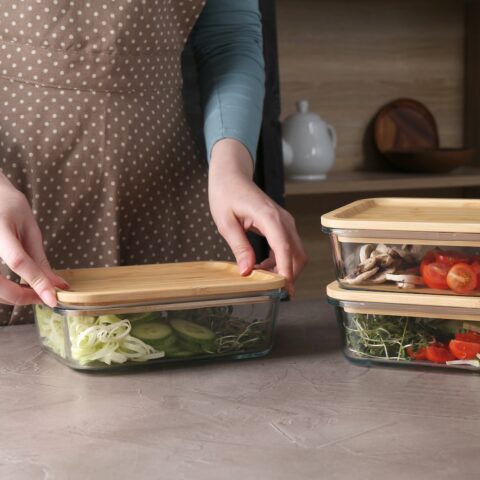The Best Ways to Grill Flavorful Foods

Grilling is the perfect solution for a quick summer meal when the weather is warm and the motivation to stand over a hot stove is low. There is also a sensory attractiveness. The dancing flames, sizzling and caramelized foods, and smoky aromas that waft through the air are enticing.
According to a 2023 report from the Hearth, Patio & Barbecue Association, grilling isn’t just for dinner. In recent years, 12% of North Americans grilled for brunch and 7% for breakfast. [1] The reasons people grill include:
- 57% for flavor
- 40% for lifestyle
- 33% for entertainment
- 29% for convenience
- 23% as a hobby
Flavor and lifestyle win out when it comes to grilling, so we wanted to cover the best ways to grill—à la Paleo—for the most flavor, plus how to clean a grill so every use will yield mouthwatering results.
Mastering Flavor on the Grill
Enhancing the flavor of your grilled dishes is as simple as layering bold and complex seasonings over the smokiness. This can be achieved with a variety of dried spices, fresh herbs, and bottles of vinegar that are likely already in your pantry. Here are some practical ideas to get you started, as well as ideas for healthy grill recipes.
Season
Commercially made dry rubs typically use a lot of salt and sugar as the base. Paleo-friendly grill seasonings rely on a balance of herbs and spices without unhealthy additives. For instance, smoked paprika and chile powder have a nice smoky flavor with a subtle sweetness that can replace brown sugar. Or experiment with a combination of dried lemon peel, dill, and garlic instead of salt.
Marinate
Marinades made with acids like citrus juice and vinegars tenderize and improve the health properties of the food. But remember to not let fish, chicken, or vegetables marinate for more than 15 to 20 minutes because the acid will degrade the food. If you would like to reuse a marinade on a finished dish, boil it first to destroy harmful bacteria.
Puree
Cooked and pureed vegetables and fruits are ideal flavor boosters for sauce bases. Think pureed carrots, fennel, or onions with sweetening apples, pears, peaches, or plums. Just add a little water to thin them out.
Reducing AGEs in Grilled Foods
All types of grilling create a chemical process that caramelizes fats, sugars, and amino acids, giving grilled foods their appealing aroma, taste, and color. This process is potentially harmful over time, but when done right, grilling can be a healthy cooking method.
High cooking temperatures can lead to glycation, damaging chemical reactions that form advanced glycation end products (AGEs). [2] The body can rid itself of low levels of AGEs; however, high levels can lead to oxidative stress and inflammation and raise the risk of chronic diseases. [3] Consider the following ideas to reduce AGEs in grilled foods.
- Grill foods at a lower temperature, well below 446°F, and cook slowly over indirect heat.
- Do not char or burn grilled foods, especially with red meat. Grill marks are a sign that the temperature is too high.
- Use acids like citrus and vinegar in marinades and cooking liquids to reduce AGEs by as much as 50%.
- Select leaner, thinner cuts of meats and remove the skin from poultry before grilling.
- Wrap seafood or chicken in foil or use grilling baskets to reduce contact with the high heat.
- Keep your grill clean; burnt bits left on the grill create AGEs.
- Eat plenty of fibrous salads and vegetables (cooked or raw) with fresh herbs to counter the effects of AGEs. [4]
- Maintain a healthy microbiome so that gut bacteria can better metabolize AGEs.
How to Clean a Grill
No one wants to cook (or eat food) with the charred bits of last week’s chicken stuck to the grates. A clean grill is about food safety and keeping your grill at peak performance, so roll up your sleeves and put some muscle into it before food prepping.
- Clean the grates after every use. We recommend using a nylon brush with a steel scraper on a cold grill instead of a metal brush. They pose less risk for tiny metal bits getting in your food (the American Medical Association reports that about 130 people are injured yearly from wire-bristle grill brushes [5]). Replace the brush when it looks frayed and leaves bristles on the grill rack.
- Clean the lid when you see charred flakes forming. Though they look like peeling paint, they are harmless carbon deposits. Use a metal chain sponge (the same used for cleaning cast iron) to scrub off the black deposits, then wipe with a wet cloth or paper towel.
- Check the burner portholes regularly to ensure they are clean. Use a small grill brush to remove debris that can clog the ports.
- Pay attention to grease accumulation. Your grill likely has a system that funnels grease away from the main cooking area and collects the remnants. Regularly scrape excess grease from the collection tray into a container. [6]
Grill Safety for Health and Flavor
Cleaning your grill will help you retain the best flavors in your foods, as well as reduce the risk of bacteria exposure and food poisoning. But it’s not the only way to keep yourself and your food healthy. Check out the health risks associated with certain grill fuels, and see which type of grill is the least harmful for you and the environment so you can continue to reap the benefits of a healthy lifestyle without damaging the nutrients in your food.
References:
- 2023 State of the Barbecue Industry > Hearth, Patio & Barbecue Association (HPBA) [Internet]. www.hpba.org. Available from: https://www.hpba.org/Resources/PressRoom/ID/2259/2023-State-of-the-Barbecue-Industry
- J U, W C, M P, S G, L F, G S, et al. Circulating Glycotoxins and Dietary Advanced Glycation Endproducts: Two Links to Inflammatory Response, Oxidative Stress, and Aging [Internet]. The journals of gerontology. Series A, Biological sciences and medical sciences. 2007. Available from: https://pubmed.ncbi.nlm.nih.gov/17452738/
- ALjahdali N, Carbonero F. Impact of Maillard reaction products on nutrition and health: Current knowledge and need to understand their fate in the human digestive system. Crit Rev Food Sci Nutr. 2019;59(3):474-487. doi:10.1080/10408398.2017.1378865
- Ye X, Zhang M, Gong Z, Jiao W, Li L, Dong M, et al. Inhibition of polyphenols on Maillard reaction products and their induction of related diseases: A Comprehensive Review. Phytomedicine. 2024 Jun 1;128:155589–9.
- AMA cautions about health risks from wire-bristle grill brushes [Internet]. American Medical Association. 2018 [cited 2024 Jun 21]. Available from: https://www.ama-assn.org/press-center/press-releases/ama-cautions-about-health-risks-wire-bristle-grill-brushes
- Consumer Support [Internet]. consumer-care.weber.com. [cited 2024 Jun 21]. Available from: https://consumer-care.weber.com/s/article/How-do-I-clean-the-inside-of-my-gas-grill-1706747434701?language=en_US
Kimberly Lord Stewart
Kimberly Lord Stewart is an author, journalist, and culinary expert. Her work highlights the importance of incorporating whole foods into daily diets and emphasizes the connection between food and overall well-being.
More About The Author




